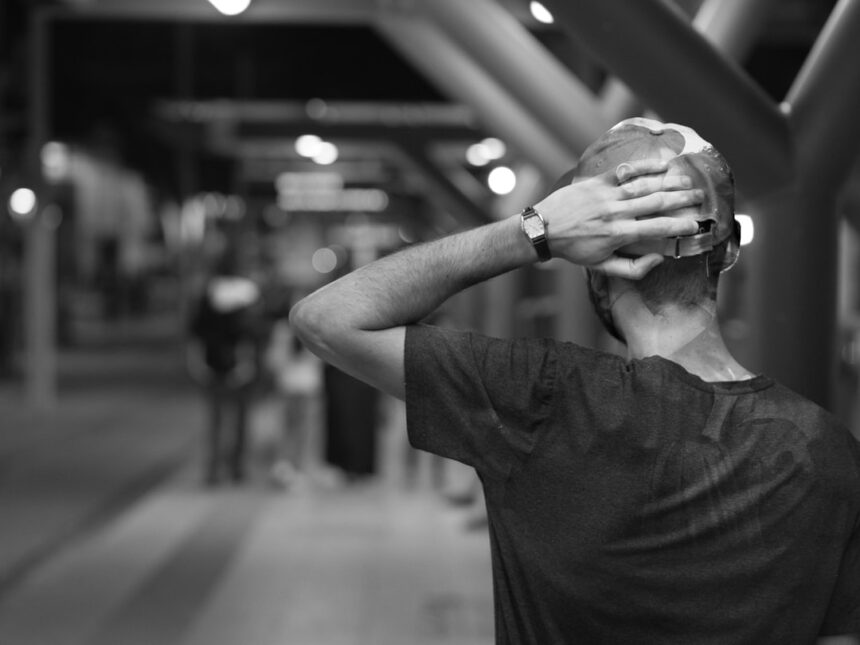The moment I discovered my partner’s infidelity was a jarring experience that shattered my world. I remember the day vividly; it was as if time had stopped. I stumbled upon a message that revealed a secret I never wanted to know.
My heart raced, and a cold wave of disbelief washed over me.
The shock was paralyzing, leaving me grappling with a whirlwind of emotions.
I felt as though the ground had been pulled from beneath my feet, and I was left suspended in a state of confusion and despair. In the days that followed, I oscillated between anger and sorrow. I replayed memories in my mind, searching for signs that I had missed, clues that could have warned me of the impending betrayal.
Each recollection felt like a dagger, piercing through the remnants of trust I had built over the years. I found myself questioning everything about our relationship—was it ever real? Did my partner ever truly love me?
The betrayal felt like a betrayal not just of our relationship but of my very self. It was a painful awakening that forced me to confront the fragility of love and trust.
Key Takeaways
- Discovering infidelity in a relationship can be a shocking and devastating experience.
- Coping with the emotional fallout of infidelity can be incredibly painful and challenging.
- Finding a path to healing and redemption through forgiveness is a journey that takes time and effort.
- Seeking therapy and counseling can provide valuable guidance and support during the healing process.
- Reestablishing trust in a relationship after infidelity requires intentional steps and open communication.
The Pain of Heartbreak: Coping with the Emotional Fallout of Infidelity
The emotional fallout from discovering infidelity is akin to navigating a stormy sea without a compass. I felt lost in a tumultuous ocean of heartbreak, where waves of sadness crashed over me relentlessly. Each day was a struggle to get out of bed, to face the world outside my door.
I experienced an array of emotions—anger, sadness, confusion, and even guilt. It was as if I were on an emotional rollercoaster, with no way to predict when the next dip would come. The pain was all-consuming, and I often found myself questioning my worth and value as a partner.
Coping with this heartbreak required me to confront my feelings head-on. I sought solace in journaling, pouring my thoughts onto the pages as a way to process the chaos within me. Writing became a therapeutic outlet, allowing me to articulate my pain and begin to make sense of it all.
I also turned to music, finding comfort in songs that resonated with my experience. Each lyric felt like a reflection of my own heartache, and in those moments, I realized that I was not alone in my suffering. Slowly, I began to understand that healing would take time, and it was okay to grieve the loss of what I thought my relationship was.
The Journey to Forgiveness: Finding a Path to Healing and Redemption

Forgiveness is often touted as a noble goal in the aftermath of betrayal, but I quickly learned that it is not a linear process. Initially, the idea of forgiving my partner felt impossible; how could I let go of the pain they had caused? Yet, as time passed, I realized that holding onto resentment was only prolonging my suffering.
I embarked on a journey toward forgiveness—not for my partner’s sake, but for my own healing. It became clear to me that forgiveness was not about excusing their actions; rather, it was about freeing myself from the shackles of anger and hurt. As I navigated this journey, I discovered that forgiveness required deep introspection and empathy.
This did not excuse their behavior but allowed me to see them as a flawed human being rather than just a betrayer. Through this lens, I found compassion for both myself and my partner.
It was a gradual process, filled with setbacks and moments of doubt, but ultimately, it led me toward a sense of peace that I had longed for since the betrayal.
Seeking Support: Turning to Therapy and Counseling for Guidance
| Category | Percentage |
|---|---|
| Adults who have received therapy or counseling | 20% |
| Adults who believe therapy is a sign of strength | 91% |
| Adults who have considered therapy but haven’t gone | 40% |
| Adults who have found therapy or counseling helpful | 80% |
Recognizing that I could not navigate this tumultuous journey alone, I sought professional help through therapy. The decision to reach out for support was one of the most empowering choices I made during this challenging time. In therapy, I found a safe space to express my feelings without judgment.
My therapist guided me through the complexities of my emotions, helping me untangle the web of hurt and confusion that had ensnared me since discovering the infidelity. Through our sessions, I learned valuable coping strategies and tools for managing my emotional turmoil. My therapist encouraged me to explore my feelings deeply rather than suppressing them.
This process allowed me to confront the pain head-on and begin to heal. Additionally, group therapy provided an opportunity to connect with others who had experienced similar betrayals. Hearing their stories made me feel less isolated in my suffering and reminded me that healing is possible, even in the darkest moments.
Rebuilding Trust: Steps to Reestablishing a Solid Foundation in My Relationship
Rebuilding trust after infidelity is no small feat; it requires commitment from both partners and a willingness to engage in open communication. As I began to heal, I realized that trust could be rebuilt but only through transparency and accountability. My partner expressed genuine remorse for their actions and demonstrated a desire to make amends.
Together, we established ground rules for our relationship moving forward—boundaries that would help us navigate this new terrain. We engaged in honest conversations about our feelings and fears, creating an environment where vulnerability was encouraged. It was essential for both of us to express our needs openly and listen actively to one another.
We also committed to regular check-ins, allowing us to address any lingering doubts or insecurities before they could fester into larger issues. While rebuilding trust took time and patience, each small step forward felt like a victory—a testament to our resilience as individuals and as partners.
Learning to Let Go: Releasing Resentment and Anger to Move Forward

Letting go of resentment is often easier said than done; it requires conscious effort and self-awareness. As I worked through my feelings of anger toward my partner, I realized that holding onto these emotions only served to keep me tethered to the past. It became clear that if I wanted to move forward—both individually and within my relationship—I needed to release the grip of resentment that had taken hold of me.
I began practicing mindfulness techniques that helped me stay present in the moment rather than dwelling on past hurts. Meditation became an essential part of my daily routine, allowing me to cultivate inner peace and acceptance. Through this practice, I learned to acknowledge my feelings without judgment and gradually let go of the anger that had consumed me for so long.
It was liberating to realize that forgiveness did not mean forgetting; it meant choosing not to let past pain dictate my future happiness.
Self-Reflection: Examining My Own Role in the Infidelity and Taking Responsibility
In the aftermath of betrayal, self-reflection became an integral part of my healing journey. While it was easy to place all blame on my partner for their actions, I recognized that relationships are complex dynamics involving two individuals. This realization prompted me to examine my own role in our relationship—what patterns or behaviors may have contributed to the circumstances surrounding the infidelity.
Through introspection, I identified areas where I could improve as a partner—communication gaps, emotional distance, or unmet needs that may have created an environment ripe for disconnection. Acknowledging these aspects did not absolve my partner of responsibility but rather empowered me to take ownership of my part in our relationship’s challenges. This newfound awareness allowed me to approach our healing process with greater empathy and understanding.
Reconnecting with My Partner: Rekindling Intimacy and Connection After Betrayal
Reconnecting with my partner after experiencing infidelity required intentional effort from both sides. We understood that rebuilding intimacy would take time and patience; it could not be rushed or forced. We began by engaging in activities we once enjoyed together—date nights filled with laughter and shared experiences reignited the spark we thought we had lost forever.
Physical intimacy also played a crucial role in our reconnection process. We took things slow, focusing on rebuilding trust through small gestures of affection—holding hands, cuddling on the couch, or simply sharing quiet moments together. These acts helped us rediscover each other beyond the betrayal, allowing us to forge a deeper emotional connection once again.
Embracing Vulnerability: Opening Up and Communicating Honestly in My Relationship
Embracing vulnerability became essential as we navigated the aftermath of infidelity together. It required both of us to shed our defenses and communicate openly about our fears, insecurities, and desires. In doing so, we created an environment where honesty thrived—a space where we could express ourselves without fear of judgment or rejection.
I learned that vulnerability is not a sign of weakness; rather, it is an act of courage that fosters deeper connections between partners. By sharing our innermost thoughts and feelings, we began to understand each other on a more profound level—recognizing our shared humanity amidst the pain we had endured together.
The Power of Redemption: Finding Strength and Growth in the Face of Adversity
The journey through infidelity has taught me invaluable lessons about resilience and redemption. While it may have felt like an insurmountable obstacle at first, I discovered that adversity can lead to profound personal growth if approached with an open heart and mind. The experience forced me to confront uncomfortable truths about myself and my relationship while also revealing strengths I never knew existed within me.
As we worked through our challenges together, we emerged stronger than before—more attuned to each other’s needs and more committed than ever to nurturing our bond. The power of redemption lies not only in forgiveness but also in the ability to transform pain into purpose—a chance to create something beautiful from the ashes of betrayal.
Moving Forward: Embracing a New Chapter and Building a Brighter Future After Infidelity
As time passed, I began to embrace a new chapter in my life—one marked by hope rather than despair. While the scars from infidelity may always remain as reminders of our journey, they no longer define us or our relationship. Instead, we have chosen to focus on building a brighter future together—one rooted in trust, communication, and mutual respect.
Moving forward has required ongoing effort from both partners; however, each step taken together feels like a testament to our resilience as individuals and as a couple. We have learned that love can endure even the most challenging trials if nurtured with care and commitment. As we continue this journey together, I am filled with gratitude for the lessons learned along the way—lessons that have shaped us into stronger partners ready to face whatever life may throw our way.
After experiencing the turmoil and emotional upheaval that comes with infidelity, many individuals find themselves on a journey of self-discovery and healing. In the article “How I Got My Life Back After Cheating,” the author shares a personal narrative of redemption and the steps taken to rebuild trust and self-worth. For those interested in exploring similar stories and gaining insights into the complexities of relationships, you might find the content on Am I Wrong Here particularly enlightening. This platform offers a variety of perspectives and advice on navigating the challenges of personal growth and relationship dynamics.
WATCH THIS!🤣 I Secretly Sold Our House While She Was On Her ‘Girls Trip’🤣
FAQs
What is cheating in a relationship?
Cheating in a relationship refers to the act of being unfaithful to a partner by engaging in romantic or sexual activities with someone else outside of the relationship.
How can cheating affect a person’s life?
Cheating can have a significant impact on a person’s emotional well-being, trust in relationships, and self-esteem. It can also lead to feelings of betrayal, guilt, and shame.
What are some steps to take to get your life back after cheating?
Some steps to take to get your life back after cheating may include acknowledging the mistake, taking responsibility for your actions, seeking forgiveness from your partner, and working on rebuilding trust and communication in the relationship.
Can a relationship recover after cheating?
While recovering from cheating in a relationship can be challenging, it is possible for a relationship to recover with open communication, counseling, and a commitment to rebuilding trust and intimacy.
How can seeking professional help be beneficial after cheating?
Seeking professional help after cheating can provide a safe space for both partners to express their feelings, work through the impact of the infidelity, and learn healthy communication and coping skills to rebuild the relationship.




